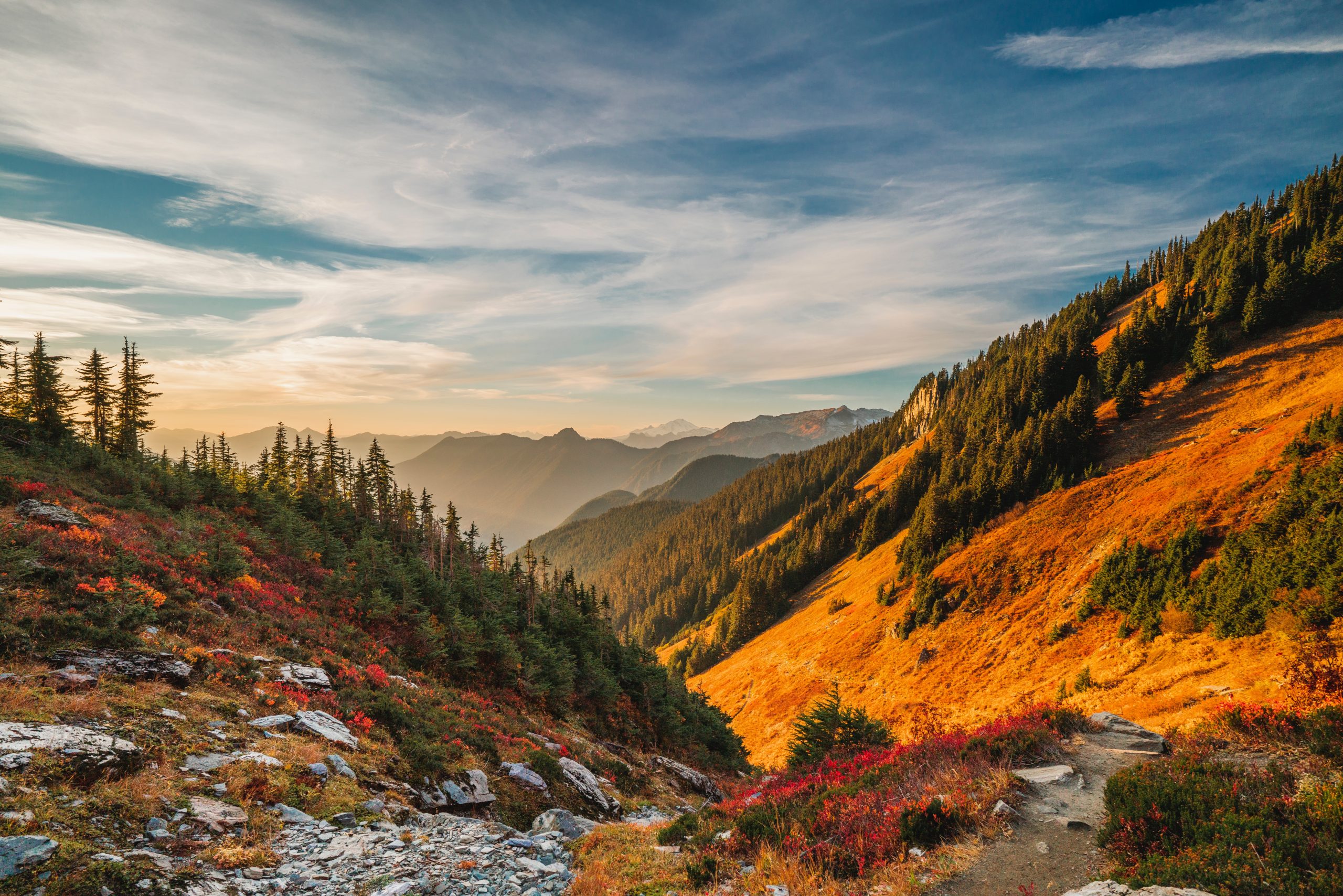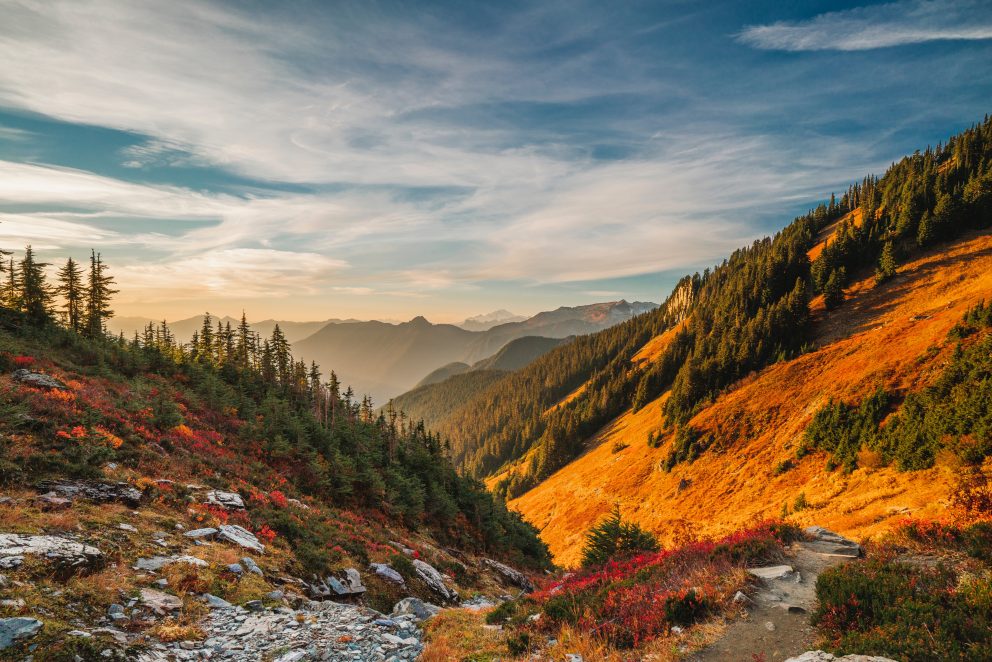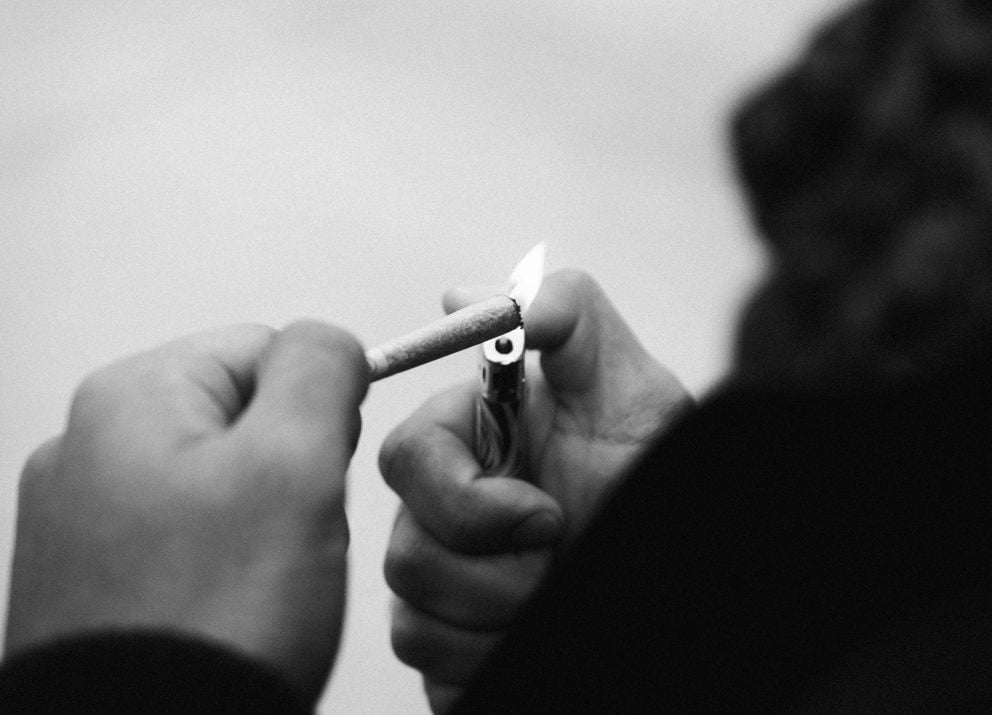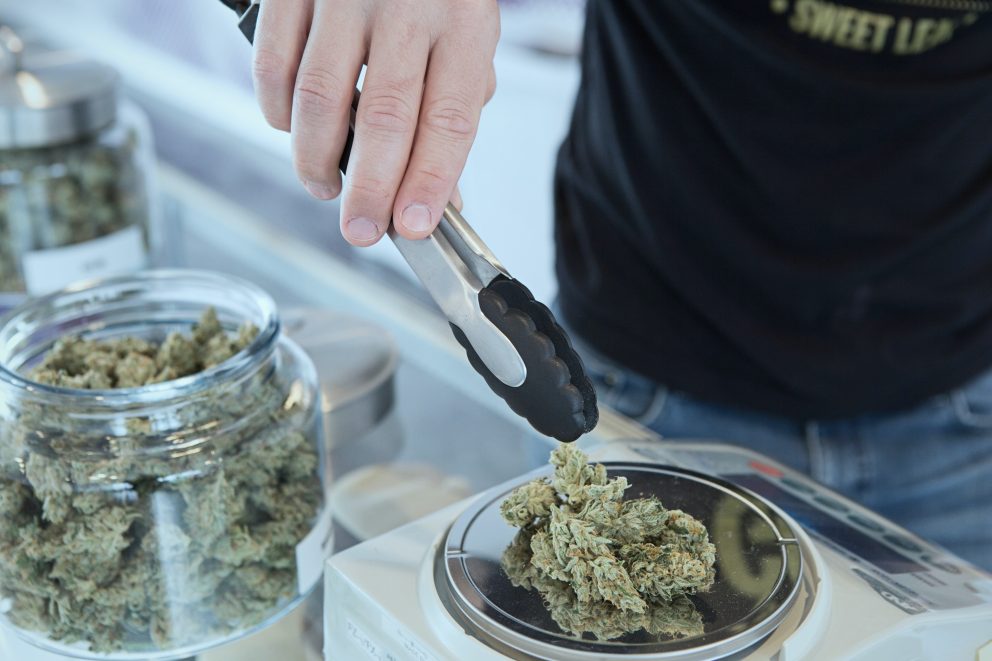
Is Weed Legal in Washington State? FAQs About WA Marijuana Laws in 2023

Photo by Toan Chu
Is Weed Legal in Washington State?
In short – yes! Weed is legal in Washington state both for medicinal and recreational use! But did you know you can still save money with a medical marijuana card? Apply here today!
How Do Cannabis Laws Work?
What began with the war on drugs has quickly shifted to become one of the biggest areas of business growth in the country as weed legalization becomes one of the legal hot topics of our time. States are deciding independently where they stand on the legalization of cannabis. So where does Washington State stand on cannabis?
Is weed legalized in Washington? What about recreational marijuana in Washington? What are Washington state’s weed laws? This post will cover the various marijuana laws at work throughout Washington state so you know how to purchase cannabis legally.
Before we review the cannabis laws of Washington state let’s review how cannabis laws generally work.
Cannabis is still illegal on the federal level but many states can legalize it in three major ways. Weed cannot simply be changed from illegal to legal. There are certain legal changes and an infrastructure that must be established to legally open the state to cannabis purchases and sales.
There are three different forms of cannabis legalization: medical marijuana, recreational cannabis, or it being decriminalized.
The fastest legal change is decriminalization. While not quite legalization, this converts possession of cannabis from a felony to a lesser infraction. As a controlled substance, marijuana possession can carry heavy charges and in some cases even mandatory jail time. For example, West Virginia still requires mandatory jail time for even minor cannabis charges.
Decriminalization downgrades possession to a lesser charge. In some cases, offenders may only face a ticket or a small fine. One major reason behind decriminalization is that many marijuana arrests can be racially motivated.
In the United States, Black Americans are 3.64 times more likely to be arrested than white Americans. Not to mention, cannabis is legal in many states so jail time has begun to seem like a bit of an extreme reaction.
Even President Joe Biden has addressed this. He recently signed an executive order federally pardoning people charged with possession of cannabis in both DC and those charged on the federal level. While not all states have changed their cannabis laws, some cities have even decriminalized cannabis on the city level.
Cannabis approved for medical use is the second form of legalization. Accommodating the prescription and legal purchase of cannabis requires establishing a system often with a robust set of regulations to manage the taxes, distribution, and management of a whole new industry.
- Which agency will manage the new medical program?
- What health conditions qualify for cannabis prescriptions?
- How can patients consume weed?
All of these questions must often be addressed by the legislation for it to pass as many bills can die before they reach law. States will vary in implementation for example, in Pennsylvania edibles and smoking weed are still illegal. Meanwhile, in Oklahoma cannabis can be legally prescribed for any medical condition. Other states require the specific conditions to be listed in the law.
A common precursor for medical cannabis legalization is approving CBD or low-THC cannabis products for medical patients. For example, Florida began with a low-dose THC program which led to the legalization of full-strength THC products. A major barrier to the passage of medical marijuana can be the lack of comprehensive planning in the writing of legislation.
Medical marijuana programs, if successful, can often lead to the final form of legalization: recreational cannabis. When approved for recreational use, marijuana is essentially legalized. It often ends up with the same status as alcohol or cigarettes. In order to purchase, one must be of legal age and provide proper identification. This also opens dispensaries to the public.
There can still be legal limits on who can grow and sell cannabis and even how much one can purchase. Once cannabis is legal recreationally, it is legal throughout the state. There may still need to be legal changes and the laws can be potentially confusing but residents can consume and purchase cannabis.
So what are Washington’s laws regarding weed?
Is Weed Legal In Washington State?
Currently, cannabis is legal both medically and recreationally. As of November 2012, the sale and possession of recreational marijuana in Washington state have been legal for adults over the age of 21. These laws take time to implement and they went into effect in December 2013 with the first legal marijuana sales in July 2014.
Cannabis is also legal for medically approved residents of Washington state. Washington residents who have been diagnosed with one of the government-approved qualifying conditions and have a medical cannabis authorization from their healthcare practitioner can purchase medical marijuana at dispensaries.
There are certain advantages for medical patients that we’ll review later in this post.
Apply for a Medical Marijuana Card Online Today
Join over 100,000 patients who have chosen Green Health Docs as their medical cannabis doctors. We have a 99% approval rate and offer a 100% money back guarantee!
Is Recreational Weed Legal In Washington?
As of 2012, cannabis was legalized for recreational use and is able to be purchased by adults who are legally of age. The city’s recreational program is currently managed by the Washington State Liquor and Cannabis Board.
Is Weed Federally Legal In Washington?
Again, regardless of the local laws governing cannabis, cannabis remains federally illegal. It would take a major national change to United States law for cannabis to become federally legal.
This can be a tad confusing because cannabis is legal both recreationally and medically in both Washington State and Washington DC. This can cause some confusion but luckily both areas allow for cannabis to be purchased by adults that are of age.
Additionally, President Biden pardoned those federally charged in the Capital with cannabis-based crimes but this did not change the federal status of cannabis as a controlled substance.
What Is The Legal Age For Smoking Weed In Washington?
Adults 21 and over are legally able to purchase recreational cannabis. There are restrictions on how much cannabis legal adults can purchase and possess.
Is It Legal To Smoke Weed In Washington?
Some states have legalized cannabis either recreationally or medically but have left smoking weed illegal. It is legal to smoke cannabis in Washington. However, that does not mean you can smoke it anywhere and everywhere.

Photo by Wells Chan
Can You Smoke Weed In Public In Washington?
It is illegal to smoke cannabis in public it also remains illegal to vape or eat edibles as long as you are outside. You are allowed to use cannabis on private property, but this is also at the discretion of the property owner.
Public use of marijuana of any type or legal amount will not result in criminal charges but can result in fines of up to $100 dollars. Possession of more than 1 ounce to 40 grams (about 1.4 ounces) can be considered a misdemeanor that can result in sentences of up to 90 days in prison and fines of up to $1,000.
Despite cannabis being legal there are possession caps for civilians without the proper licensing to grow or distribute cannabis.
It also remains illegal to drive under the influence of cannabis. If you have more than 5 nanograms per milliliter of THC in your blood you can face significant legal penalties similar to driving while under the influence of alcohol.
Weed Laws In Washington
Washington is famous for being the second state to legalize cannabis. As far back as 1997, residents were voting about decriminalizing cannabis. Initiative 685 attempted to legalize the prescription of any Schedule 1 drug if there was enough research to show its medical validity.
In 1998, Initiative 692 successfully passed which legalized cannabis for terminal patients and was the first step in legalization. It was even famous for being endorsed by The Seattle Times which was the first time that a major news outlet had endorsed medical marijuana legislation.
Initiative 692 began the infrastructure for medical marijuana. It established the list of conditions approved for medical marijuana and allowed patients to retain a 60-day supply of cannabis which was formally established as 24 ounces of usable cannabis and no more than 15 plants. This paved the way for dispensaries.
According to the Revised Code of Washington 69.51A.040(1)(a) patients cannot be arrested if they have a valid medical authorization and possess no more cannabis than the legal limits.
The qualifying patient or designated provider may not be arrested if he or she has been entered into the medical cannabis authorization database holds a valid recognition card and possesses no more than the amount of cannabis concentrates, useable cannabis, plants, or cannabis-infused products authorized under RCW 69.51A.210.
Washington Dispensary Laws
Since it’s been legalized for recreational and medical use cannabis is governed by a few different departments of government. The Department of Health governs medical cannabis authorization and manages recommendations and the health benefits of cannabis.
The Liquor and Cannabis Board governs the regulation of all businesses and is the point of contact for dispensaries with regulating producers, processors, retailers, and the tracing of product. The Department of Agriculture governs the processors of edibles and pesticide use on cannabis while the Department of Revenue governs any taxes on recreational or medical cannabis.
One interesting law regarding Washington dispensaries is a commitment to social equity. The 2012 ballot measure Initiative 502, legalized recreational use of cannabis but also created provisions to address “the disproportionate harms the enforcement of cannabis laws had on certain populations and communities.”
In an attempt to rectify this disparity it established an application process for dispensary licenses that would address those negatively impacted by inequitable law enforcement.
Legal Amount Of Weed To Carry In Washington
The adult possession, in private, of up to one ounce of cannabis for personal use (as well as the possession of up to 16 ounces of marijuana-infused product in solid form, and 72 ounces of marijuana-infused product in liquid form) is not subject to criminal or civil penalty.
Possession of more than one ounce to 40 grams is a misdemeanor, punishable by a mandatory minimum of 24 hours to a maximum of 90 days in jail. A mandatory fine of $250 is imposed for the first offense, and a mandatory fine of $500 is imposed for the second or subsequent violations.
Possession of more than 40 grams is a class C felony punishable by up to 5 years imprisonment and/or a fine up to $10,000. An additional mandatory $1,000 fine applies to first time offenses and a $2,000 fine to second or subsequent offenses.

Photo by Budding
How Much Weed Can You Buy In Washington?
There is a major benefit to medical vs. recreational cannabis users which is how much cannabis they can purchase. Medical patients are afforded a higher allotment for how much cannabis they can retain and purchase.
For medical patients it is 3 ounces of usable marijuana, 48 ounces of marijuana-infused product in solid form, 216 ounces of marijuana-infused product in liquid form, or 21 grams of marijuana concentrate. Medical patients may also grow up to 6 cannabis plants for personal use, with up to 8 ounces of usable marijuana from their growth.
Recreational legalization is to help make cannabis accessible but it is also not a free-for-all. There are laws to govern the legal sale and regulation. There are caps for recreational users as well. They can only retain 1 ounce of usable marijuana, 16 ounces of marijuana edibles, 72 ounces in liquid form, or seven grams of marijuana concentrate.
Who is Eligible for Medical Marijuana in Washington State?
Any Washington resident who has been diagnosed with a qualifying condition and has a medical cannabis authorization from their healthcare provider is eligible for medical marijuana.
To become an official medical marijuana recipient patients must:
- Obtain a medical cannabis authorization from their doctor
- Visit a medically-endorsed store to get a medical cannabis card.
- Use the card when purchasing products to avoid sales tax
What Medical Conditions Qualify for a Medical Marijuana Card in Washington State?
Currently, the medical conditions that entitle a patient to a medical marijuana prescription are the following:
- Cancer
- Human Immunodeficiency Virus (Hiv)
- Multiple Sclerosis
- Epilepsy Or Other Seizure Disorder
- Spasticity Disorders.
- Intractable Pain, I.E. Pain Unrelieved By Standard Medical Treatments And Medications.
- Glaucoma, Either Acute Or Chronic, Limited To Increased Intraocular Pressure Unrelieved By Standard Treatments And Medications.
- Crohn’s Disease With Debilitating Symptoms Unrelieved By Standard Treatments Or Medications.
- Hepatitis C With Debilitating Nausea Or Intractable Pain Unrelieved By Standard Treatments Or Medications.
- Diseases Which Result In Nausea, Vomiting, Wasting, Appetite Loss, Cramping, Seizures, Muscle Spasms, Or Spasticity, When These Symptoms Are Unrelieved By Standard Treatments Or Medications.
- Anorexia
- Chronic Renal Failure Requiring Hemodialysis.
- Posttraumatic Stress Disorder.
- Traumatic Brain Injury
Is It Legal To Grow Weed In Washington State?
Unless you are an authorized medical marijuana patient under state law or obtain a producer’s license, growing marijuana remains a crime. Only individuals and businesses licensed by the Washington State Liquor and Cannabis Board can cultivate marijuana.
Is Weed Delivery Legal In Washington?
Weed delivery is not legal in Washington at this time. According to a Superior Court Judge licensed retail stores delivering marijuana themselves or via the use of third-party delivery services violate Sections 60.50.401(1)…) and 69.50.4013 of the Revised Code of Washington and Section 314-55-110(4)(d) of the Washington Administrative Code.
Benefits of Medical vs. Recreational Weed in Washington
While recreational cannabis does mean that it’s legal for anyone to use cannabis regardless of their medical status there are often some advantages for getting your medical marijuana card. Here are a few key benefits to pursuing a medical marijuana authorization vs. relying on recreational cannabis.
It costs less as medical patients get to dodge the whopping 37% in taxes on any and all purchases. This can be especially helpful as you may require a decent amount to manage pain or your symptoms.
As mentioned earlier, the allotments for how much cannabis you can purchase and maintain in your possession as a medical patient is higher.
It is also not legal to grow cannabis unless you are a medical marijuana patient or have official licensing from the state. Medical patients can grow up to 6 cannabis plants for personal use, with up to 8 ounces of usable marijuana from said plants.
Final Thoughts
Residents of the Evergreen State can access cannabis legally and recreationally. The laws have been established to allow for adults to use cannabis without fear of legal ramifications while patients can get vital access to cannabinoids, terpenes, and other vital chemicals that can help alleviate symptoms and address their conditions.
If you’d like to capitalize on the benefits of medical marijuana or simply want help with your application check out Green Health Docs for help making the process fast and simple. There’s no reason you should miss out on access to your medicine.
 This article has been reviewed by Dr. Anand Dugar, an anesthesiologist, pain medicine physician and the founder of Green Health Docs. Graduating from medical school in 2004 and residency in 2008, Dr. Dugar has been a licensed physician for almost 20 years and has been leading the push for medical cannabis nationwide.
This article has been reviewed by Dr. Anand Dugar, an anesthesiologist, pain medicine physician and the founder of Green Health Docs. Graduating from medical school in 2004 and residency in 2008, Dr. Dugar has been a licensed physician for almost 20 years and has been leading the push for medical cannabis nationwide.
